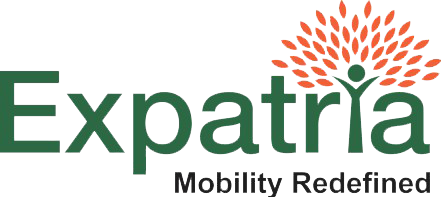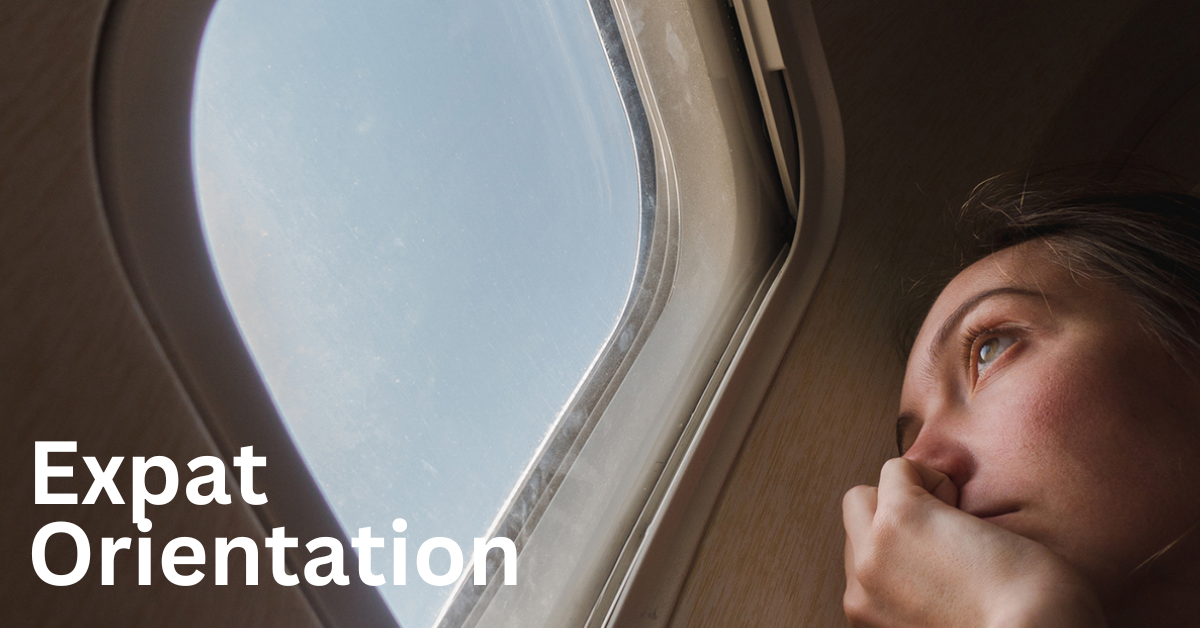Moving to a new country is exciting but can be stressful without proper preparation. Having a plan is essential to make the transition smoother. In your New country, you’ll encounter many new experiences, some positive and others challenging. Knowing your destination country and understanding what’s involved in living there can help you adapt and avoid potential obstacles.
To make the experience more enjoyable and smooth, we’ll discuss key aspects every expat should consider before and during the move.
Legal Requirements
Visa and Residency -
Before settling into a new country, it is important to check the visa and residency requirements. Depending on the country, one may need a tourist visa, student visa, work visa, or permanent residency. It is recommended to research the visa and residency requirements of the country beforehand and apply for the appropriate visa before arrival.
Work Permits -
If planning to work in a new country, obtaining a work permit is necessary. Work permits may have specific requirements such as education or work experience, and may be limited to certain industries. It is important to research the work permit requirements and application process before arriving in the country.
Local Regulations -
Each country has its own set of laws and regulations that must be followed by its citizens and residents. It is important to familiarize oneself with the local regulations, such as driving laws, tax laws, and employment laws. Failure to comply with local regulations can result in fines, legal trouble, or even deportation.
Housing and Accommodation
Finding a Place to Live -
When settling into a new country, finding a suitable place to live is crucial. It is recommended to start the search for accommodation before arriving in the new country. Online real estate websites and local newspapers are good sources of information. It is also advisable to seek advice from local real estate agents who can provide insights into the local housing market.
Renting vs. Buying -
Deciding whether to rent or buy a property depends on individual circumstances. Renting offers flexibility and is suitable for those who are unsure of their long-term plans. On the other hand, buying a property is a long-term investment and can be financially beneficial in the long run.
Understanding the Lease Agreement -
Before signing a lease agreement, it is essential to read it carefully and understand the terms and conditions. The lease agreement should include details such as the monthly rent, security deposit, length of the lease, and any additional fees. It is also important to clarify any doubts with the landlord or real estate agent before signing the agreement.
Financial Considerations
Opening a Bank Account -
One of the first things to consider when settling into a new country is opening a bank account. This will allow you to manage your finances more effectively and avoid carrying large amounts of cash. It is important to research the different banks in the area and compare their fees, interest rates, and services before choosing one that suits your needs. Some banks may require proof of address, identification, and proof of income, so it is best to prepare these documents beforehand.
Cost of Living & tax Obligations -
The cost of living in a new country can vary significantly from what you are used to. It is important to research the average cost of housing, transportation, food, and other essentials in the area to ensure that you can afford to live comfortably. Keep in mind that some expenses may be higher or lower than what you are used to, so it is important to budget accordingly.
Also, understanding the tax laws and regulations in the country is important along with any tax treaties that may exist between your home country and the new country. Keep track of your income and expenses, as well as any tax deadlines, to avoid penalties or fines. Seeking advice from a tax professional can be helpful in navigating these obligations.
Healthcare System
Registering for Healthcare & Finding a dcotor -
One of the most important things to consider after moving is healthcare. Register for healthcare as soon as possible to ensure that you are covered in case of any medical emergencies. In some countries, healthcare is free for residents, while others require you to pay for insurance.
To register for healthcare, you will need to provide personal information such as your name, address, and identification documents. You may also need to provide proof of income or employment status. It is important to have all necessary documents ready to avoid any delays in the registration process
Finding a Doctor -
Once you have registered for healthcare, it is important to find a doctor that you are comfortable with. In some countries, you may be assigned a doctor, while in others you may have the freedom to choose your own. It is important to research the healthcare system in your new country to understand the process of finding a doctor. When choosing a doctor, consider factors such as their qualifications, experience, and communication skills. You may also want to consider their location and availability.
Emergency Services -
In some countries, you may need to dial a specific emergency number, while in others you may need to go to a specific hospital or clinic. It is important to research the emergency services in your new country and have the necessary information readily available. In some countries, emergency services may be free, while in others you may need to pay a fee. You should have a plan in place to cover any potential costs in case of a medical emergency.
Education and Schools
School Enrollment -
When settling in a new country, one of the most important things to consider is education for children. Parents should research the local school system and find out about enrollment requirements, such as age limits and necessary documents. Some countries may have different school schedules and curriculums than what one is used to, so it is important to research and understand those differences.
Higher Education Options -
For those pursuing higher education, it is important to research the options available in the new country. This may include universities, vocational schools, and technical institutions. It is important to research the admission requirements, application process, and available financial aid options.
Language Classes-
For expats who need to improve their language skills or obtain additional education, there are often education and language classes available. These classes can help individuals improve their language skills, learn new skills, and become more adapted to the new culture.
Employment
Job Market Overview -
Finding employment, while settling into your new country is a crucial aspect of establishing oneself. It is important to research the job market to identify the industries that are thriving and the ones that are facing challenges. Job search websites, recruitment agencies, and networking events can be useful resources to explore job opportunities.
Employment Rights & Benefits
This includes minimum wage, working hours, overtime pay, and vacation time. It is important to research the laws and regulations to ensure that the rights of the employee are protected. In addition, researching the benefits offered by the employer such as health insurance, retirement plans, and sick leave can help in making informed decisions.
Cultural Adaptation
Understanding Local Customs
Learning local customs & traditions can help avoid misunderstandings and show respect for the local culture. Some customs may seem unusual or even strange at first, but it is important to keep an open mind and be willing to learn.
One way to understand local customs is to observe the behavior of the locals. For example, if everyone takes off their shoes before entering a home, it is likely a cultural norm. It is also helpful to ask questions and seek out information from locals or expats who have lived in the country for a while.
Cultural Etiquette
Cultural etiquette refers to the expected behavior in a specific culture. This can include things like how to greet people, what to wear, and how to eat. It is important to be aware of cultural etiquette to avoid offending others or coming across as rude.
For example, in some cultures, it is customary to bow instead of shaking hands. In others, it is important to dress modestly and cover your head when entering a religious site. By being aware of these customs, you can show respect for the local culture and avoid any misunderstandings
Dealing with Culture Shock
Culture shock refers to the feeling of disorientation and confusion that can come from being in an unfamiliar environment. Symptoms of culture shock can include homesickness, anxiety, and frustration.
To deal with this, it is important to be patient with yourself and give yourself time to adjust. It can also be helpful to seek out support from other expats or locals who have gone through a similar experience. Engaging in activities that you enjoy, such as sports or hobbies, can also help you feel more at home in your new country.
Transportation and Mobility
Public Transportation System
It is important to research the various options available, such as buses, trains, and subways, as well as their schedules and routes. In many countries, public transportation is reliable and affordable, making it a convenient option for daily commuting. Additionally, some cities offer discounts for students and senior citizens, so it’s worth checking if you qualify.
Getting a Driver's License
If you plan on driving in your new country, you will need to obtain a driver’s license. The process for getting a license varies depending on the country, but it typically involves taking a written test and a driving test. It is important to familiarize yourself with the traffic laws and regulations of your new country before taking the tests. Some countries may also require you to take a driving course before obtaining a license.
Car Ownership
Owning a car can provide a sense of independence and convenience, but it also comes with responsibilities and expenses. Before purchasing a car, it is important to research the costs associated with car ownership, such as insurance, maintenance, and fuel. Additionally, some countries have strict emissions standards, so it’s important to ensure that your car meets the requirements. It’s also important to familiarize yourself with the traffic laws and regulations of your new country to avoid any legal issues while driving.
If buying Car is not possible then other option is to rent (with or without chauffeur), for details on things to take care of, you can read our blog post here
Communication
Here are some things to keep in mind when setting up communication services in a new country.
Setting Up Internet and Mobile Services
It is recommended to research and compare different service providers to find the best plan that suits your needs and budget. Some factors to consider include data usage, coverage, and pricing. It is also important to ensure that your devices are compatible with the local network and that you have the necessary SIM card or phone plan.
Postal Services
Sending and receiving mail is another important aspect of communication. It is advisable to familiarize yourself with the local postal service and their regulations. This includes understanding the mailing system, postage rates, and delivery times. It is also recommended to have a secure mailbox or postal box to receive important documents and packages.
Emergency Contact Numbers
In case of an emergency, it is crucial to have access to the local emergency contact numbers. This includes the police, ambulance, and fire department. It is advisable to keep a list of these numbers handy and to also have them programmed into your phone. It is also recommended to have a basic understanding of the local language to communicate effectively in an emergency situation.
Social Integration
Making Friends and Networking
Making new friends in a new country can be difficult, but there are many ways to meet people. Joining social clubs, attending local events, and taking part in community activities are great ways to meet new people and build a social network. It is also important to be open-minded and willing to try new things.
Community and Recreational Activities
Getting involved in community and recreational activities is a great way to learn more about the local culture and meet new people. Joining a sports team, taking a class, or volunteering for a local charity are all great ways to get involved and make a difference in the community.
Volunteering Opportunities
Volunteering is a great way to give back to the community and meet new people. There are many organizations that rely on volunteers to help with a variety of tasks. Volunteering can also help newcomers gain valuable work experience and improve their language skills.
Sounds Overwhelming? Don’t be afraid!
Expatria is your one stop-shop for all Expat related Services in India, whether you are looking for support in Documentation, Accommodation, and transportation or even getting acquainted with your new city in India, we got your back!
If you moving to India & have questions, get in touch with us on 91-9599198950 or write to us at enquiry@expatria.in, our team of experts will be supporting you every step of the way!





